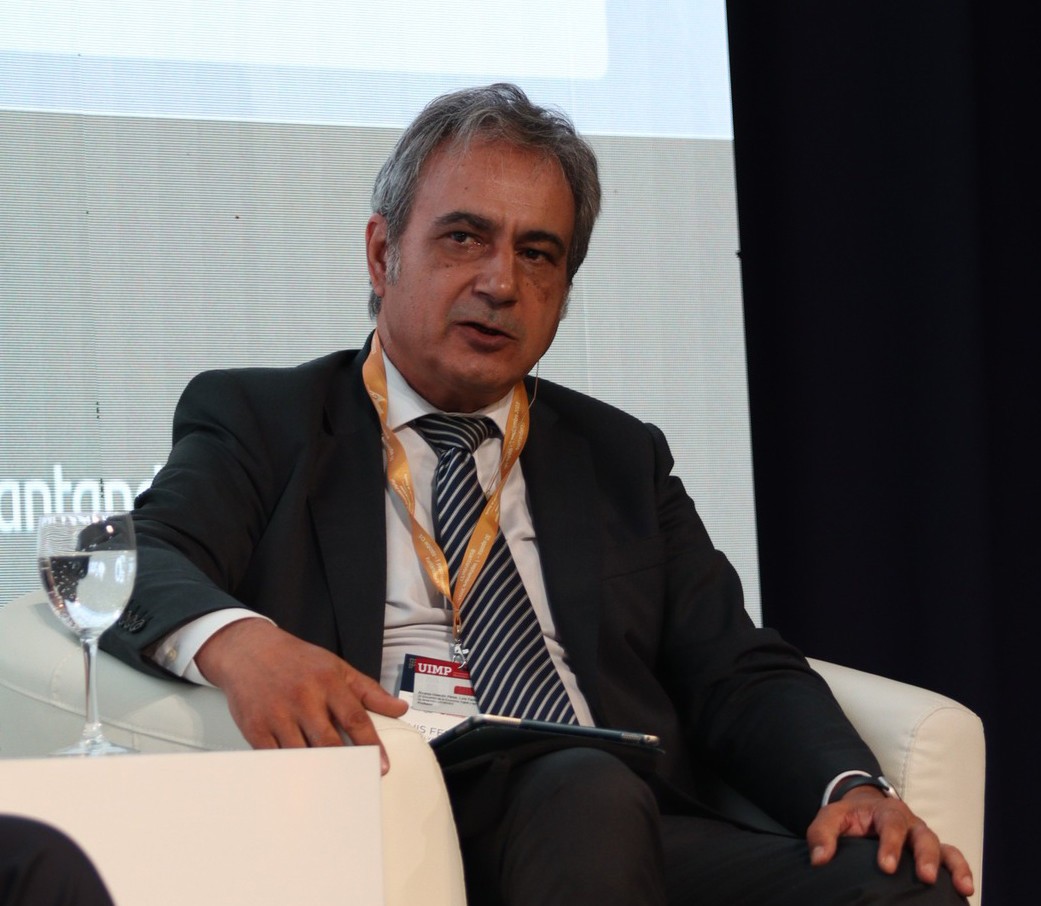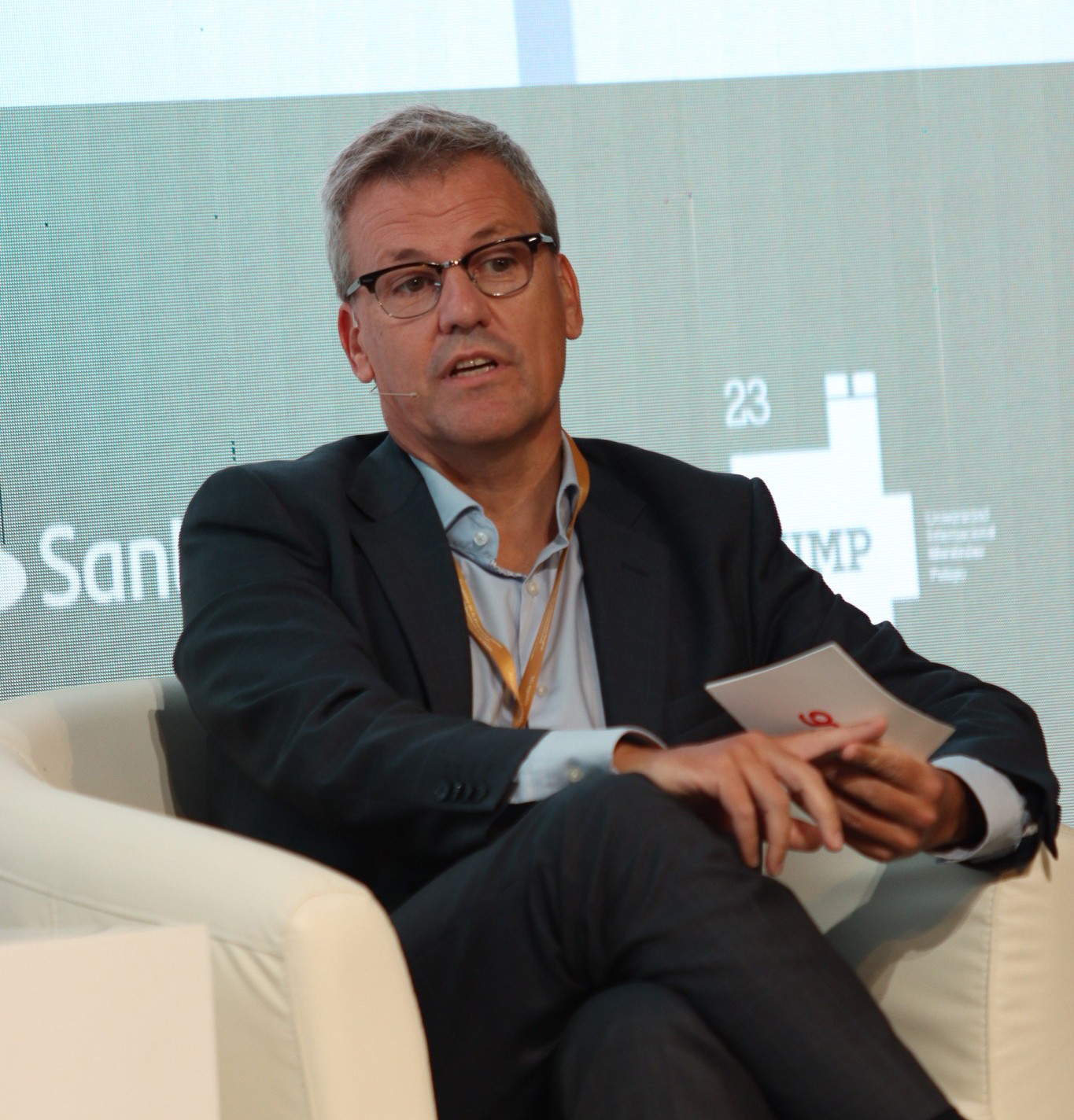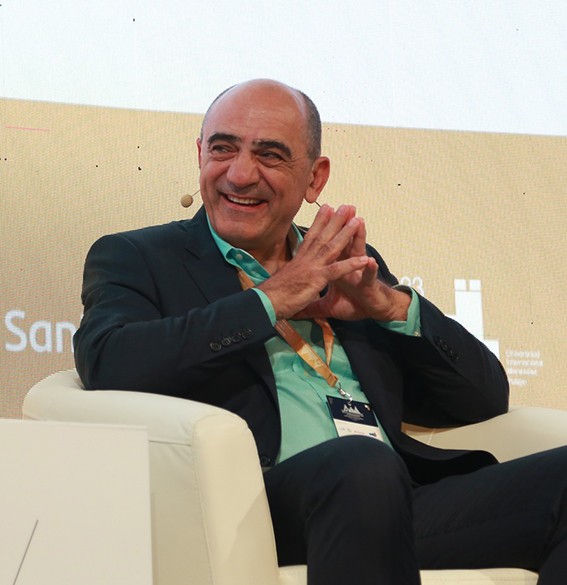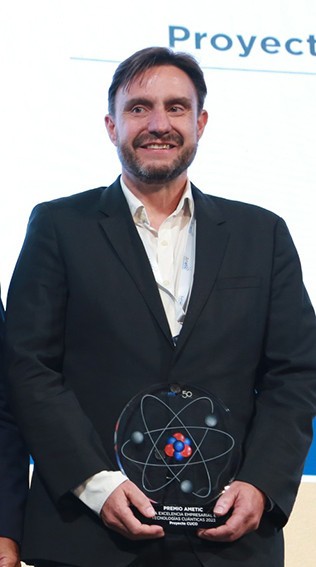50 years of driving transformation in Spain
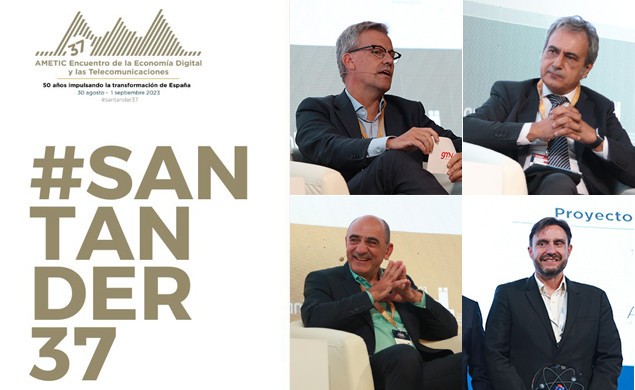
For another year, GMV played an active role in the event, contributing its expertise to the panels on cybersecurity, talent, and satellite applications, as well as moderating others through Luis Fernando Álvarez-Gascón, General Manager of GMV’s Secure e-Solutions, who is also Vice President of AMETIC. The first panel focused on the keys to cybersecurity in the supply chain, and it was Javier Zubieta, Marketing and Communication Manager of GMV’s Secure e-Solutions and Chairman of AMETIC’s Cybersecurity Committee, who presented his company’s.
As Álvarez-Gascón said in his opening remarks to the panel, the impact of cybersecurity on the economy and social development is undeniable. For this reason, part of the program at the 37th AMETIC-UIMP meeting was dedicated to the responses of Spanish industry to the challenges posed by cybersecurity.
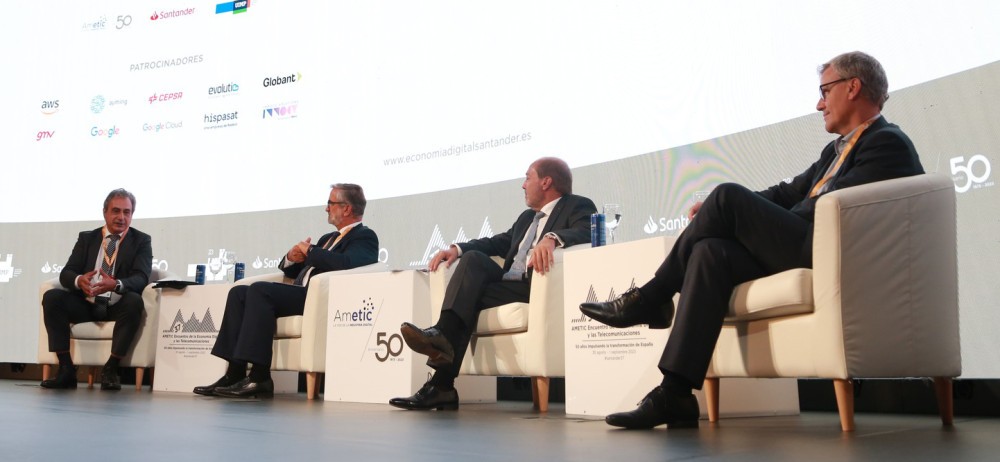
The growth of the digital economy implies an increase in the risks associated with digital assets, and the estimated impact of security incidents on the global economy is comparable in size to the impact on the Spanish economy, according to the panel moderator. As he pointed out, when we talk about the risks of cyberattacks, it is not just about the economic impact, but also about individual freedoms, threats to our privacy, and of course threats to national security.
Cybersecurity challenges are evolving and linked to different threat scenarios. Cybercriminals are also exploiting technological developments for their activities, even using artificial intelligence to create new and hybrid attacks, including in the cloud.
As Álvarez-Gascón recalled, European institutions have adopted various measures in response to this scenario, with Spain standing out as a leader in digital regulation, cybersecurity, and privacy protection. As Spain holds the Presidency of the Council of the European Union, the panelists discussed the actions being driven by Europe, with Javier Zubieta highlighting the moment of particular interest that the cybersecurity industry is experiencing.
He referred to some of the projects in which GMV is involved, providing CERT/SOC services to clients such as Red.es and Spain’s National Mint and Stamp Factory.
He also recalled how the company began managing the cybersecurity of Galileo’s ground segment in 2018, and has since prevented any incidents in the constellation service. He also highlighted “boutique projects” such as the one being developed to ensure the cybersecurity of drones at the Rozas Airborne Research Center (CIAR) in Galicia and of unmanned aerial vehicles, as well as GMV’s involvement in the realization of Spain’s first quantum computer for the Barcelona Supercomputing Center, together with Qilimanjaro. In the field of innovation, as Zubieta pointed out, GMV’s commitment is rock solid, including participation in specific cybersecurity programs of the INCIBE Innovative Public Procurement initiative, as well as missions for the State Secretariat for Digitalization and Artificial Intelligence (SEDIA) and the Center for the Development of Industrial Technology (CDTI).
With regard to digital regulation, the GMV manager expressed some concern about possible legislative overlap, underlining the specific issue of notification of cybersecurity incidents. Although he described the measure as positive, he pointed out the need to address the issue thoroughly and carefully, as it affects both the NIS 2 Directive and other regulations.
GMV also took part in the panel entitled “CEOS: Talent, Strategic Investment”, represented by Luis Fernando Álvarez-Gascón, who also spoke on behalf of AMETIC as its vice president. For his part, Miguel Ángel Molina, GMV’s Space Systems EST Deputy General Manager, took part in the panel on satellite applications, where he highlighted the company’s growth path in the space industry and some of its major milestones, such as the Galileo management contract and the development of the SouthPAN system’s processing and control centers. Molina stressed the versatility of space applications and their ability to positively impact a wide range of sectors. In an increasingly interconnected world, the use of space technology is becoming a fundamental means of improving and optimizing industries.
During the meeting, the 2023 Business Excellence in Quantum Technologies Award was presented by AMETIC to the CUCO project (led by GMV) and the Caramuel project (led by Hispasat and also involving GMV).
José Carlos Baquero, GMV’s Artificial Intelligence and Big Data Manager, accepted the AMETIC award and praised the excellent collaborative work of all the companies and research centers that make up the CUCO consortium (BBVA, DAS Photonics, GMV, Multiverse Computing, Qilimanjaro Quantum Tech, and Repsol; five research centers: BSC, CSIC, DIPC, ICFO, and Tecnalia; and the Polytechnic University of Valencia).
The CUCO project is subsidized by the CDTI and supported by the Spanish Ministry of Science and Innovation as part of the Recovery, Transformation and Resilience Plan. It is the first major quantum computing project at the national and business level and aims to advance scientific and technological knowledge of quantum computing algorithms by means of public-private collaboration between companies, research centers, and universities, in order to accelerate the implementation of these technologies for their use in the medium term.

Under this banner, AMETIC hosted the 37th Meeting on the Digital Economy and Telecommunications at the Menéndez Pelayo International University (UIMP) in Santander, Spain. The central themes of the event were the reindustrialization of the economy through green digitalization, the opportunities of regenerative artificial intelligence, and the quest for a quantum Spain.
